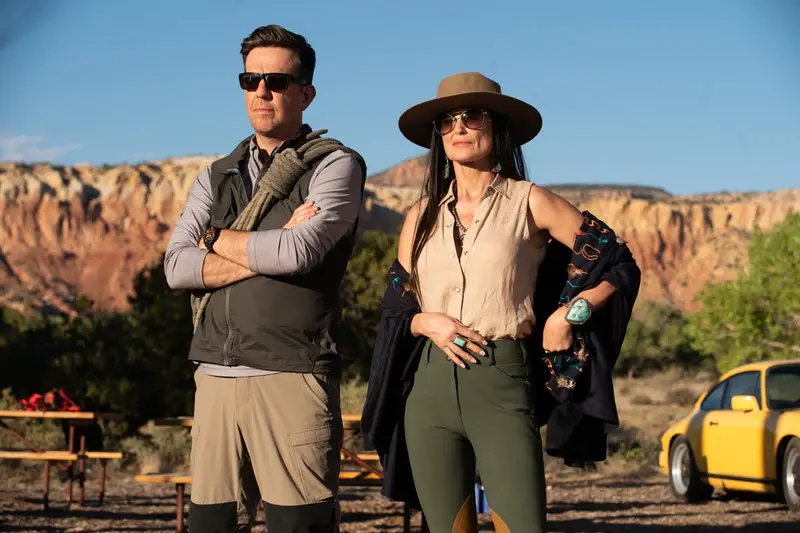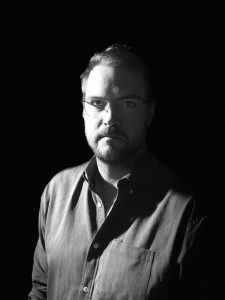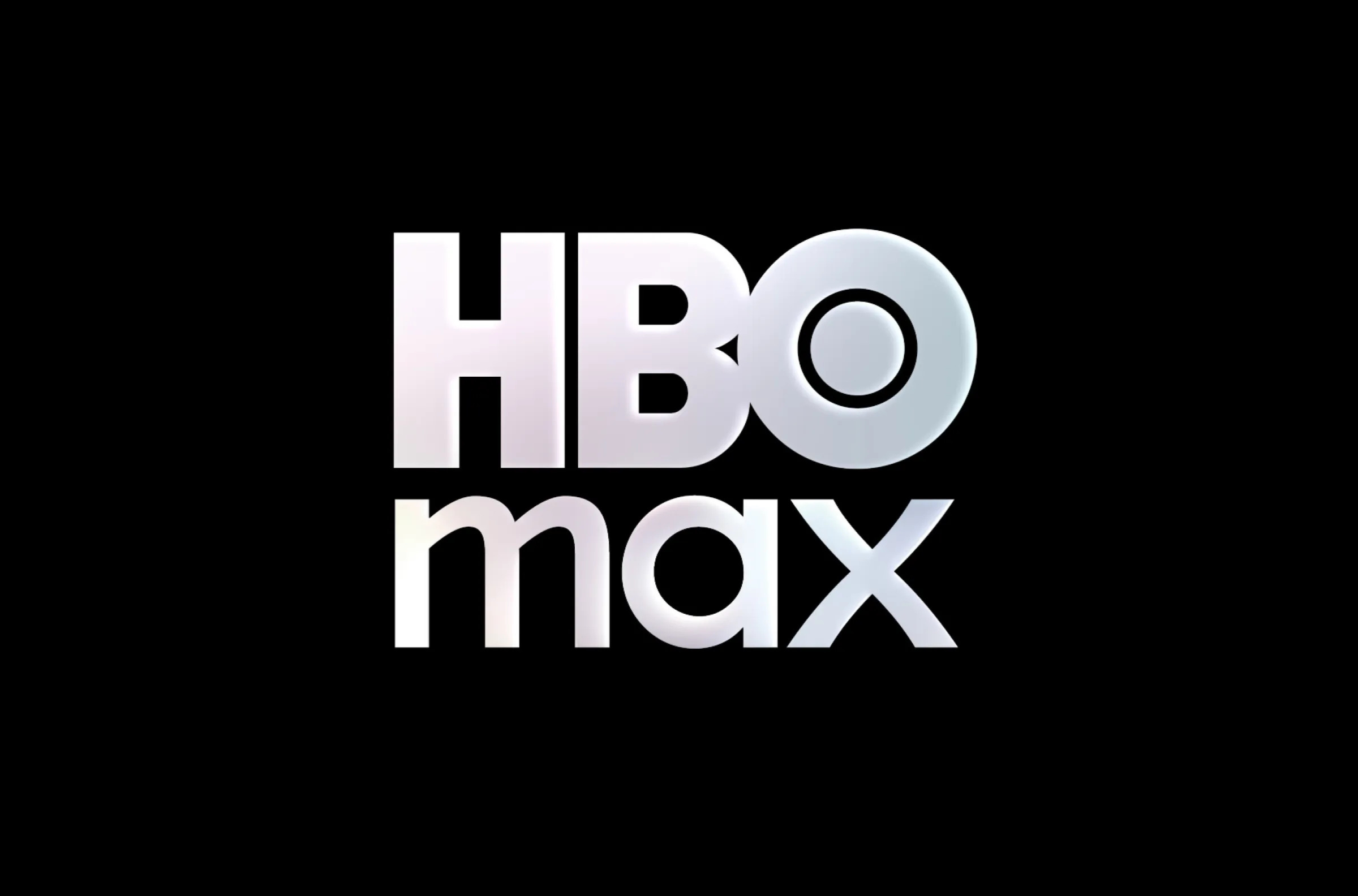
Writer-director Patrick Brice spoke with Solzy at the Movies yesterday about the newly released workplace satire, Corporate Animals.
Corporate Animals is one of the most hysterical workplace satires that I’ve seen this year. Catch it in theaters or VOD this weekend!

How did you first learn about Sam Bain’s script for Corporate Animals and when did you decide to direct the film?
Patrick Brice: I got a one page sort of idea/treatment from Sam and Ed Helms’s production company sent to me. It was basically just the general idea—a small company goes on a corporate team building retreat and ends up getting stuck in a cave-in with each other. That was pretty much it. It’s maybe a paragraph. I was such a fan of the show, Peep Show, that literally I could have been sent anything. I could have been sent a blank page of paper with Sam Bain’s name on it and I would have said yes. It was kind of a no-brainer for me from the start of wanting to get into the process of developing this movie with them and then that ends up being such an enjoyable experience between us—coming up with a more washed out idea and taking it to Snoot Entertainment, who were our financiers. They’re the ones that had Sam write the script and also were there for the whole process developing it together. It ended up being a really wonderful collaboration. It’s one thing when you get to meet someone who is one of your heroes as an artist and filmmaker but another to actually get to collaborate with them and for it to be such a great experience. Sam and I have other things going on together now that we hope to do. We kind of became friends for life through the process. A really great part of making this movie is my relationship with Sam.
The film features a star-studded cast with a handful of improvisers. How much of the film is improvised in comparison to the script?
Patrick Brice: I would say maybe 15-20 percent of the film is improvised. Sam wrote a really great script but also when you have this level of talent when it comes to improvisers available to you, it would kind of be dumb not to capitalize on that. I like to give people room to be able to play while keeping the scripts as an anchor. There’s a fair amount of improvising in the film and when it did come out, I was just grateful to be working with actors who had such great instincts and smart instincts knew where to go and where not you know when it came to that. In none of my stuff do I really like it when people are just improvising for improvisation’s sake. That said, I do welcome it when it comes and it’s working. I was pleasantly surprised and grateful for that aspect of it. Having people like Ed Helms, Dan Bakkedahl, and Nasim Pedrad on board, it would be a shame not to use some of their superpowers when they making a movie like this.
Similarly, how much fun was it to work with this cast?
Patrick Brice: It’s the best! The process of making this movie was pretty singular in that we had 18 days to shoot it. The entire movie takes place for the most part in one location so all 10 actors in every scene every day meant that if we didn’t like each other or it wasn’t working creatively, the process was going to be a nightmare. Luckily, every single person was completely game and on board and having someone like Demi Moore at the helm or at the head who just kind of set the tone for being such a gracious, fun, and kind person. It kind of meant that we were all that because the person whose kind of the most important person on set was such a selfless and wonderful collaborator.
What was the most challenging aspect of having to shoot a film in 18 days?
Patrick Brice: I would say making sure we were covering all the scenes correctly so that we would have the option that we needed to craft them in the editing room. When you have 10 characters who are all talking in a long scene and might be a seven to ten page scene, it means that you have to do your diligence to cover each one of them, which just means we’re having to move the camera around much more than you than you’d imagine and making sure that we were doing our diligence with that was huge. Also, filming inside of a cave which is inherently not a comfortable environment. All of us were breathing dust into our nose. We were shooting in Santa Fe, New Mexico, which is a gorgeous place to shoot a movie but it’s also 7,000 feet. Between the altitude and breathing in dust every day, I would say it was not a comfortable experience for anybody. But at the same time, just like it is in the movie, it was a team building experience and going through the pain associated with making something that way only kind of brought everyone together in this really beautiful way. That aspect of it felt like summer camp but a very rigorous, intense, and sometimes a summer camp where you might want to kill yourself at certain parts of the day.
Regarding the workplace satire, what were you looking to do in terms of commentary?
Patrick Brice: One of the things that I think was part of Sam’s initial idea of the movie was wanting to explore what happens when the most mundane environment—an office—meets the most extreme environment being stuck in one spot nearing death and forced to make these huge life-changing decisions. The intersection of the two is something that was really exciting to all of us. Also mainly taking a kind of more absurd and comedic approach to a subject matter that is usually dealt with an extremely dramatic way was also very exciting.
Can you talk about the use of “Weinstein-ing?”
Patrick Brice: Sure. I mean that was something because we’re making a movie that touched on some of the subjects that are prevalent in our culture right now—the #MeToo movement and everything, that was sort of our way of both acknowledging what was happening but also sort of maybe taking the power away from him. Not wanting to make light of that situation at all—wanting to acknowledge it but also take the sort of power away from that word and that person. Having someone like Demi say that who was an actress in the 80s and 90s and early 2000s at the time when women were not being treated well across the board, I think it meant a lot to her to be able to not only touch on that kind of stuff but also deliver a line like that.
After directing this film, would you consider holding a team building exercise in a cave?
Patrick Brice: Absolutely 100 percent not. I am not going anywhere near a cave. I have no plans to my future. I already feel like I’ve done that by making this movie. I don’t have any desire or need to do that going forward.
What about eating edible cutlery?
Patrick Brice: That I can get on board for and I feel like it’s something that while it’s a ridiculous idea, under the right circumstances and with the right ingredients, I feel like it’s something that could actually benefit people.
You’re a Sundance veteran. What advice would you give to a filmmaker attending Sundance for the first time with a film?
Patrick Brice: I would say keep your expectations low and try to have fun. Try to watch movies if you possibly can. I think a lot of younger filmmakers—there’s a tendency to get wrapped up in the business side of things there. It can be very intense and hard to relax but if you’re able to find time to kind of center yourself and whether it’s taking a walk or watching a film—that makes the process go a lot easier. I’m very grateful to have been there a few times before this last year, where I feel like I was able to really enjoy myself and enjoy just celebrating the fact that I made something with all these people that I really loved.
The premiere was actually the first time that I saw a movie at the MARC.
Patrick Brice: Oh, wow! I love that theater. I thought the sound and projection was great, which is not consistent really at any film festival but I was really grateful that the movie was there. It means it’s really close so you really can feel it.
I was laughing up a storm.
Patrick Brice: That’s good to hear.
Thanks again for your time and congrats on the film.
Patrick Brice: Thank you, Danielle. I really appreciate it.



